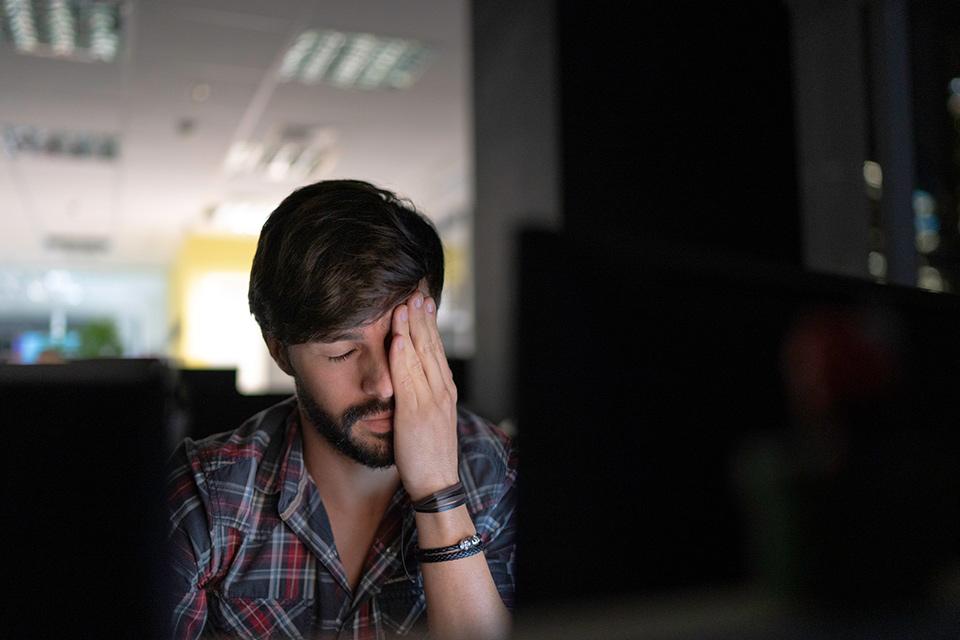In 1942, the mean reported sleep time for adults was 7.6 hours. By 2001, that average fell to just 6.7 hours — we lost almost a whole hour of sleep. That is probably no surprise to the busy, tired folks among us who, according to a poll by the National Sleep Foundation, are the 63 percent of adults who feel they are not getting enough sleep and the 43 percent who reported they rarely or never get a good night’s sleep on weeknights. Let’s look at some ways to get better sleep.

What Impact Does Lack of Sleep Have on the Body?
A lack of sleep is associated with impaired learning, faster aging of the brain, impaired driving and work performance, overeating, obesity, elevated cholesterol and an increased risk of diabetes, hypertension and death from all causes. There is even some evidence poor sleep could impair the immune system’s ability to eliminate small, newly established tumors before they become dangerous.
Getting adequate sleep regularly may reduce the severity of cold symptoms and also may maintain sufficient numbers of natural killer cells. In addition, the hormone melatonin, which is produced in response to darkness and during sleep, is an antioxidant and an inhibitor of cancer cell growth. Plus, a lack of sleep negatively affects our appearance and emotional state.
There is no doubt that our brains work best when we are well-rested. During sleep our brains stabilize newly formed memories, and getting enough sleep helps promote learning and cognitive performance the next day. But just how much sleep we need has been debated. And, although the amount of rest you require varies among individuals, if you need an alarm clock to wake up you are probably sleep-deprived.
Ways to Get Better Rest
Since sleep is such a crucial component of excellent health, here are some strategies to get a better night’s rest:
- Don’t Go to Bed With Your Smartphone. Minimize screen time at night. Smartphones, computer screens, televisions and tablets all emit blue light which suppresses melatonin production. Using these devices close to bedtime can disrupt your sleep. Instead of reaching for a device, reach for a book. Reading under a low light or meditating is most restful. If you wake during the night and have trouble going back to sleep, read in dim light or lie quietly until you feel sleepy again.
- Experience the Dark Side. The natural light/dark cycle makes you alert during the day and promotes good sleep at night by shifting melatonin production. Clocks that emit light, night lights and outside lights can disrupt these natural rhythms. Multiple studies associated light exposure at night to an increased risk of cancer, particularly breast cancer. Exposure to light before bed or during sleep reduces the depth and quality of sleep. Even a low level of light through closed eyelids (e.g., a night light) can reduce melatonin production. Light-blocking curtains or a sleep mask can help enhance the quality of your sleep.
- Maintain a Schedule and Wake Naturally. Try to go to bed at the same time each night and wake up at the same time every morning. If possible, don’t use an alarm clock which wakes you abruptly and may cause you to disrupt a valuable REM sleep cycle. By waking naturally, you allow your body to go through its final sleep cycle, where the hormone production shifts — reducing melatonin and increasing cortisol — which helps you become alert.
- Practice Good Sleep Hygiene. Your body temperature drops naturally during sleep. Don’t disrupt this natural process by making your bedroom excessively warm, above 75 F, or by trapping heat in with extra blankets. By lowering the heat, avoiding alcohol and caffeine and minimizing noise, you will give yourself the best chance of a good night’s rest. If you feel it is too quiet, listening to white noise such as a fan can often lull you to sleep.
- Exercise and Eat Right. Regular exercise is an important component of a healthy lifestyle and the benefits are many, including being tired when you go to sleep. If you are having trouble sleeping, vigorous exercise may help. Just don’t exercise right before bedtime. In addition to your exercise routine, diet may also play a role in sleep. A diet lacking in vegetables is associated with sleeping poorly. Those following a nutritarian diet may gain a better quality sleep than people who eat poorly.
- Seek Natural Remedies. Natural methods are always preferable to prescription sleep medications. Sleeping pills are linked to serious problems, including an increased risk of death. Instead, try safe remedies to combat sleeplessness. Morning light exposure or even light therapy helps normalize the melatonin cycle, establishing better sleep patterns to resolve insomnia. So, in the morning, pull up the shades and let in the light, go outside in the sunshine or use a therapeutic light. Tart cherry juice at bedtime may also help since it is a natural dietary source of melatonin. Make sure your levels of zinc and omega-3 fatty acids are adequate because they may also benefit sleep.
